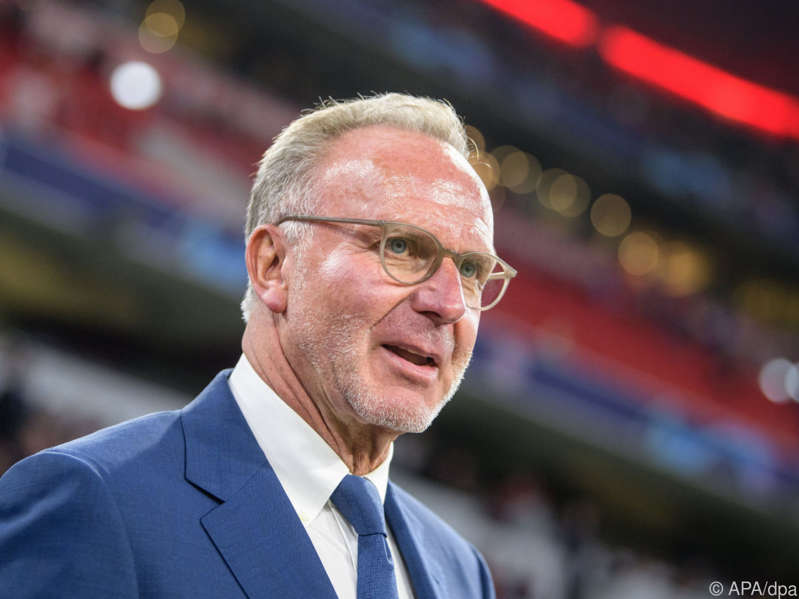
Rummenigge is in clear opposition to the Super League plans
The 55 national associations of the European Football Union (UEFA), including the ÖFB, have taken a joint decision against the new Super League and its initiators. “We are European football, they are not,” said UEFA President Aleksander Ceferin towards the end of the UEFA Congress in Montreux on Tuesday. “We stand firm, resist and will act against it.” The choice of wording was adopted as an explanation without votes against.
“The conspiratorial clubs obviously did not realize that they did not achieve their status in isolation, but that it was part of a dynamic system in which large, medium and small clubs have all contributed to everyone's success and failure,” the statement said . The exit is an affront to European values and the merits of sport. “We know, morally, what is at stake and we will protect football from a selfish clan.”
The twelve breakaway clubs are Manchester United, Manchester City, Liverpool, Arsenal, Chelsea and Tottenham from England, Real Madrid, FC Barcelona and Atletico Madrid from Spain, and Juventus Turin, Inter Milan and AC Milan from Italy. Top clubs from France like Paris Saint-Germain or Germany like Bayern Munich have spoken out against it.
Bayern's CEO Karl-Heinz Rummenigge moved back to the UEFA Executive Committee in the midst of the crisis. The 65-year-old German was acclaimed as a representative of the European Club Association (ECA) in Montreux – for the ÖFB, President Leo Windtner and Thomas Hollerer were on site.
Rummenigge wants to be a mediator between UEFA and the twelve Super League clubs. “I was and am a friend of dialogue and would like to try to mediate as a mediator between UEFA and the twelve breakaway clubs,” said the CEO of FC Bayern in a statement on Tuesday.
Rummenigge actually wanted to end his career as a functionary after his Bayern contract expired at the end of 2021. “It was no longer part of my life plans to join the UEFA executive again,” he said. However, he was able to be personally asked for help by many ECA teams and UEFA President Ceferin. “I love football and I also feel responsible, so it goes without saying that I will help European club football and UEFA to maintain our competitive structures in Europe,” he said.
Rummenigge follows Andrea Agnelli. The boss of Juventus Turin had resigned from the post because of the rejections of the Super League plans that he had significantly advanced. Rummenigge had already been a member of the Executive Committee from 2016 to 2017, but then withdrew in favor of Agnelli. His term of office on the UEFA executive runs until 2024, which means that Germany is again represented there with two members.
FC Bayern, who won the Champions League last year, clearly distanced themselves from the tendency to replace them and are therefore also in line with the German Football Association (DFB). DFB President Fritz Keller called for the Super League clubs and their junior teams to be excluded from all previous competitions. “Football is open and there for everyone. A closed Super League, on the other hand, only for the super-rich and super-reckless,” said the head of the association in a Twitter message from the DFB. Germany seems to be an important partner for Ceferin in the tough fight with the renegades.
The UEFA boss for women's football, the German Nadine Keßler, spoke out clearly against the Super League plans – although those responsible on Monday had also promised the creation of an elite league for women. Women's football not only needs more clubs, “but also a better balance between the clubs so that more than just a few outstanding players can benefit from it,” said the former world footballer in an open letter.
This is not possible with a closed Super League, emphasized Keßler and added: “The values of our sport are important in times when greed seems to overshadow the general needs of society and football as a whole.”

